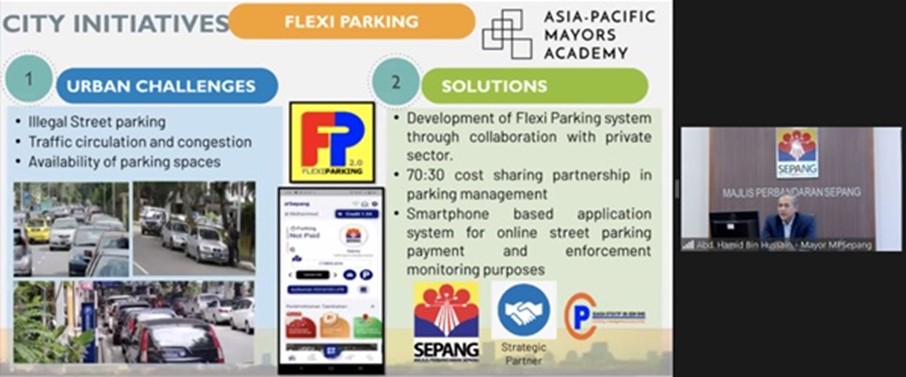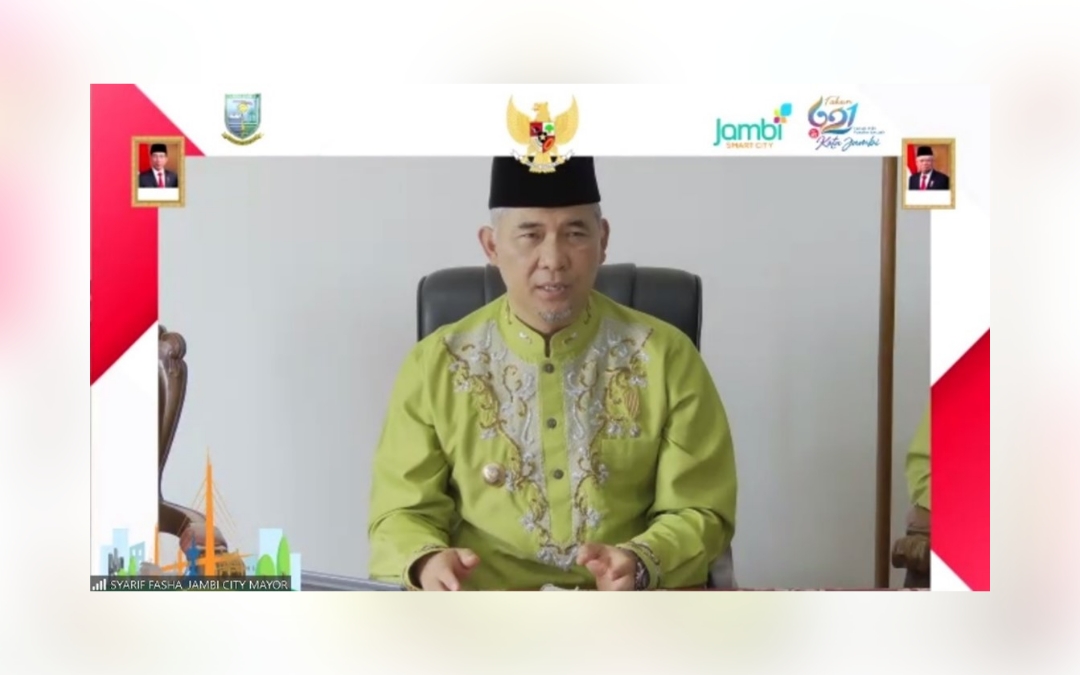17 May 2022 | UCLG ASPAC, a permanent member of the Academy’s Advisory Board, held the Asia-Pacific Mayors Academy Module 6 “How to Finance is Sustainable Urban Development.” The topic is a response to the fact that access to finance is a crucial factor in implementing sustainable urban development strategies, projects and programmes. This module is focused on unpacking finance funding options available to local governments and leveraging and adapting local context to access international finance and develop bankable projects.

Batch Three Fellows of the Academy engaged in a deep dive of their financing challenges and modalities available to them. Mr. Abd Hamid Hussain, Mayor of Sepang, discussed the city’s initiative on flexi parking which involved a cost sharing partnership with the private sector in parking management. One of their challenges was making the people aware of how charging parking fee will benefit them, such as the improvement of traffic management and support for the efforts towards a low carbon city through the paperless payment. Iloilo City Mayor Jerry Treñas expounded on the city’s plan to build a level two hospital which will be funded by the city government. They are also in partnership with the private sector which will provide specific services and laboratory equipment at no cost to the city government.
UCLG ASPAC invited Dr. H. Syarif Fasha, ME, Mayor of Jambi City, to share his initiative in implementing and financing the city’s waste to energy project – the Integrated Resource Recovery Center. By processing waste at the source, the city successfully reduced two tons of waste daily, which also reduced the waste at the landfill and transportation cost to the landfill. With the strong commitment from the Mayor, the city upscaled the pilot project by replicating it in each of the 11 subdistricts. The effort has several indirect co-benefits such as creation of job opportunities and increased awareness on solid waste management in the local communities.
Innovative financing mechanisms were presented by Ms. Junko Ota, researcher at the Institute for Global Environmental Strategies (IGES). One of this was the city-to-city collaboration for zero-carbon society towards the Joint Credit Mechanism (JCM). Under the city-to-city collaboration programme, a city will work together with a local government in Japan for a feasibility study and pilot implementation of a zero-carbon project. The Ministry of Environment Japan (MOEJ) provides funding of up to 20 million yen (0.18 million USD) for a maximum of three years duration per project (click here for more info). The call for application for FY2022 is expected around August 2022 and cities from all developing countries are eligible, with priority to JCM countries and Malaysia and India. IGES can facilitate the matching with a local government in Japan. After the pilot implementation, full-scale implementation can be through the JCM or other sources. JCM includes 17 partner countries as of 2022 and can fund a maximum of 50% of initial cost for low/zero-carbon infrastructure at a maximum of 2 billion yen (8 million USD) per project. Another financing mechanism discussed by Ms. Junko Ota was Kitakyushu City’s sustainability bond. She explained that it was the first time in Japan wherein the green bond and social bond were combined to make the sustainability bond issued by the local government. The bond targeted two types of investors, institutional and individual, the latter already sold out and generated a total of 500 million yen.
The Asia-Pacific Mayors Academy Module 6 on “How to Finance is Sustainable Urban Development” is divided into two: Module 6a was conducted last 17 May 2022 and Module 6b scheduled on 7 June 2022. More information on the Asia-Pacific Mayors Academy is available at its official website: https://www.asiapacificmayorsacademy.org/











